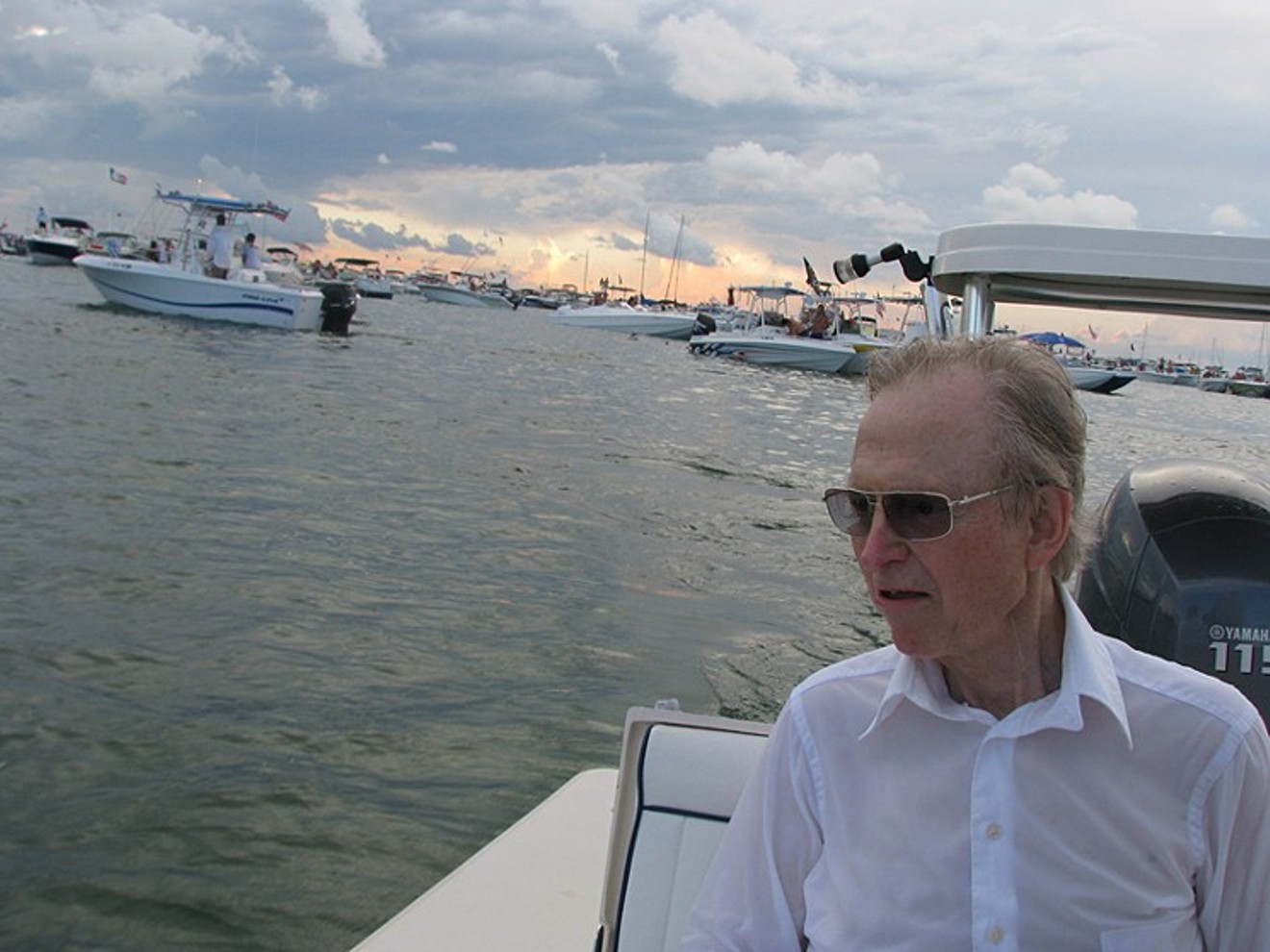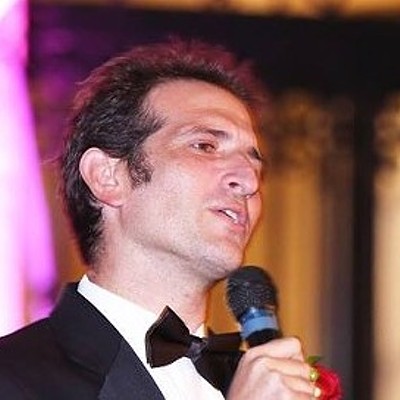When the awful news broke today that the legendary writer Tom Wolfe had died at 88 years old, all sorts of pockets of America jumped to lay claim to a man who was arguably the most influential nonfiction writer of the past 50 years.
Wolfe grew up in Virginia. He made his name in New York writing profiles for Esquire and New York magazines pioneering New Journalism, where the writer was just as much the star of the story as the subject. He explored 1960s psychedelics in Northern California with The Electric Kool-Aid Acid Test and the first astronauts training at Edwards Air Force Base in Southern California for The Right Stuff.
But his last major work, the 2012 novel Back to Blood, was set right here in Miami. And Wolfe spent memorable time here exploring the culture and even partying at the Columbus Day Regatta.
Though Back to Blood didn't garner Wolfe's best reviews, his prose remained as clean as his trademark white suits. Throughout his career, Wolfe was always chasing the Zeitgeist, and in the early 21st Century, he thought Miami was "the city where America's future has arrived first." He was fascinated that the Magic City was the nexus of two subjects: sex and immigration.
Back to Blood centered on Nestor Camacho, a Cuban-American cop who gains fame and notoriety after climbing a sailboat to arrest a refugee escaping Cuba. As was his custom with his novels, beginning with Bonfire of the Vanities, Wolfe tried to capture every inch of the world he was exploring. In Back to Blood's 704 sprawling pages, he examines our city's hedonism, artistry, segregation, and multiculturalism.
To get a feel for Miami, Wolfe researched, as any former reporter would, by rolling up his sleeves and exploring the city. Oscar Corral filmed the documentary Tom Wolfe Gets Back to Blood, chronicling Wolfe's time researching in Miami. They visited botanicas in Hialeah and Little Haiti, the Columbus Day Regatta, fishermen and homeless bridge dwellers on the Rickenbacker Causeway, and the Miami Herald newsroom to hang with local reporters.
"He had a wry sense of humor; you never knew if he was joking. He loved meeting new people and learning new things," remembers Corral, who was a reporter for the Herald when he heard Wolfe was writing a book about Miami. "So I wrote him a letter offering to be his guide down here."
Over the course of years, generally for a week at a time, Corral would drive Wolfe around Miami. After a few tours, Corral asked Wolfe if he would mind filming their adventures. "He couldn't believe I would want to do a documentary about him. Nobody else ever had. He thought he was boring."
After picking Wolfe up from his hotel, usually the Mayfair in Coconut Grove, Corral relished learning reporting tips from the mouth of a master. "He always saw himself as a journalist first. He always said the worst assignments you at first think might be boring lead to the biggest eye-openers. The people he interviewed didn't know he was interviewing them. He would strike up conversations with people and listen as they told stories. You would rarely see him scribbling or taking notes, but if you watch the documentary and then read the novel, you see where parts of the book come from."
Unfortunately, Wolfe's opus about Miami ended up being the final chapter in the career of an extraordinary writer.
[
{
"name": "Air - MediumRectangle - Inline Content - Mobile Display Size",
"component": "19274298",
"insertPoint": "2",
"requiredCountToDisplay": "2"
},{
"name": "Editor Picks",
"component": "17482312",
"insertPoint": "4",
"requiredCountToDisplay": "1"
},{
"name": "Inline Links",
"component": "18711090",
"insertPoint": "8th",
"startingPoint": 8,
"requiredCountToDisplay": "7",
"maxInsertions": 25
},{
"name": "Air - MediumRectangle - Combo - Inline Content",
"component": "17482310",
"insertPoint": "8th",
"startingPoint": 8,
"requiredCountToDisplay": "7",
"maxInsertions": 25
},{
"name": "Inline Links",
"component": "18711090",
"insertPoint": "8th",
"startingPoint": 12,
"requiredCountToDisplay": "11",
"maxInsertions": 25
},{
"name": "Air - Leaderboard Tower - Combo - Inline Content",
"component": "17482313",
"insertPoint": "8th",
"startingPoint": 12,
"requiredCountToDisplay": "11",
"maxInsertions": 25
}
]












